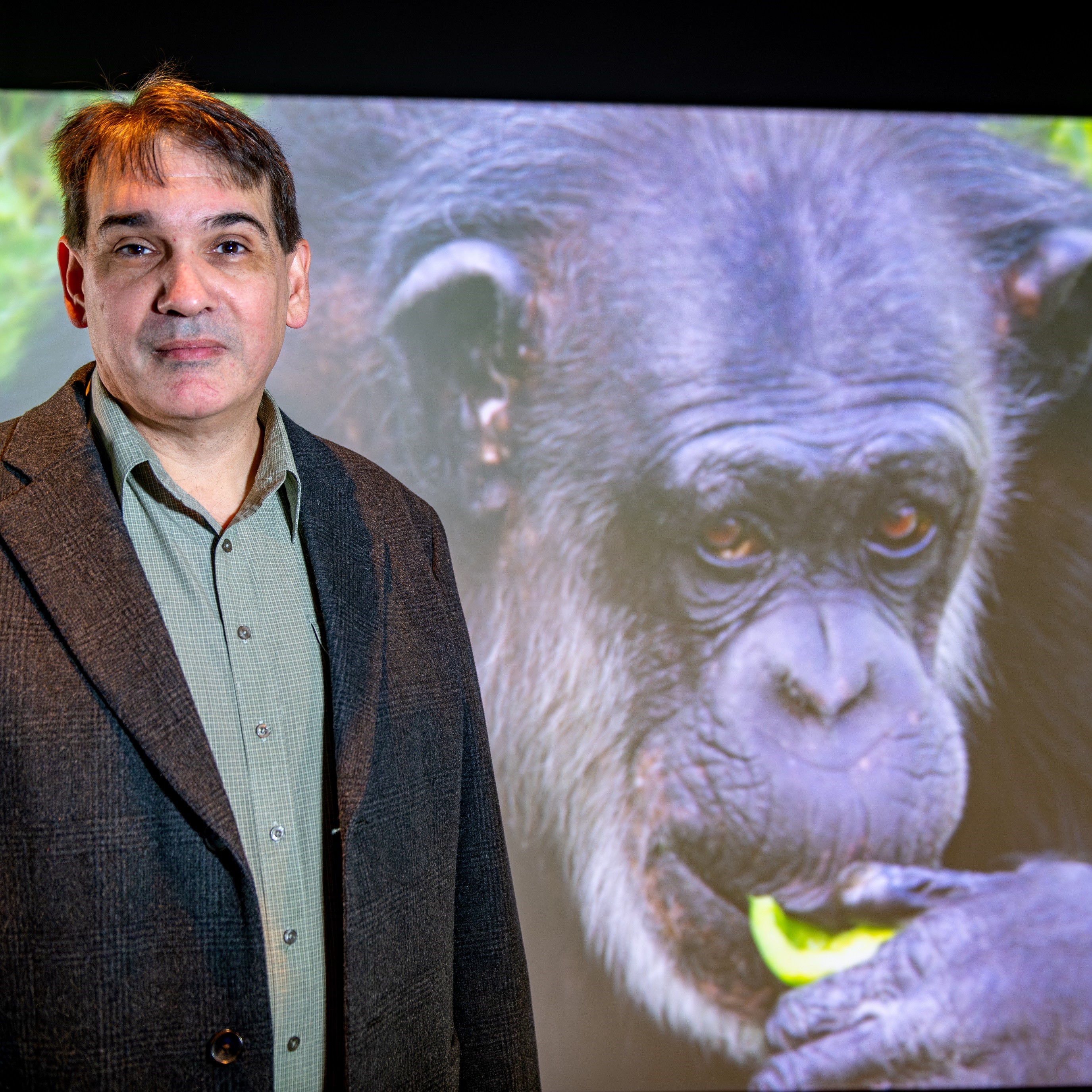
A world-first experiment to measure chimpanzee heart rates via a digital camera could help curb cardiovascular disease in great apes in captivity and provide valuable insights into how their brain develops from an early age.
Using a contact-free technique to extract cardiac signals from chimpanzees by filming subtle movements in their face or thorax, and monitoring their emotional response to different stimuli, a team of researchers led by the University of South Australia (UniSA) has made some startling discoveries.
Chimpanzees - our closest living relatives - show similar responses to human babies when they experience fear, excitement, or joy, causing their heart rate to increase or decrease.
Their response to videos of nature scenes is also the same as humans, relaxing them and lowering their heart rate significantly, despite not being familiar with the environment.
By monitoring their heart rates from a distance, researchers are confident they can pinpoint early signs of cardiac disease in chimpanzees - one of the main causes of mortality in captive great apes - and flag these endangered animals for treatment.
Seven chimpanzees were filmed in captivity from a short distance at the Wolfgang Koehler Primate Research Centre in Leipzig, Germany, for the study. UniSA engineers were sent the footage and used artificial intelligence to determine the heart rates.
Remote sensing engineer UniSA Professor Javaan Chahl says it is the first time that chimpanzee heart rates have been recorded by a digital camera, extracting cardiac signals from their facial hues using image-processing algorithms.
Previous studies have either relied on sensors attached to the chimpanzee's body, requiring primates in captivity to be trained to tolerate them, or ensuring the animal is anaesthetised before undertaking basic health checks.
The researchers not only recorded chimpanzee heart rates using the new technology, but also compared how the apes' heart rates changed when shown videos of aggressive behaviour between chimpanzees from different groups, scenes of chimpanzees eating, and nature videos.

Lead author, UniSA PhD student Danyi Wang, says the apes' heart rate increased when viewing video footage of chimps fighting and feeding, and slowed when looking at nature scenes.
"Heart rate changes can be linked to emotional responses, mental effort, attention and focus," Danyi says. "Babies show emotional responses early in development, which can be observed by physiological changes that help them adapt and integrate into their environment. We observed the same in the chimpanzees we monitored.
"Their responses to viewing nature scenes could be an innate physiological response to the natural world. We know that when humans spend time in nature, or view nature-related stimuli, it has a calming effect. It appears nature has the same effect on chimpanzees, and this could be deeply rooted in our evolutionary history."
Because primates have similar DNA to humans, monitoring their physiological changes may provide vital information about the development of their thinking, attention, language, learning, memory and perception.
Prof Chahl says, as with human infants, heart rate measures could be used to test recognition memory and therefore help reveal mental processes in different contexts.
"This would not only complement existing efforts to understand the evolution of cognition, but it would also enable us to test populations that otherwise do not engage in cognitive tasks, such as very young or untrained primates."
Cardiovascular disease is very common in captive great apes, typically due to age-related changes, thickening of the heart muscles and reduced elasticity. By monitoring their heart, researchers believe they will be able to detect abnormal heart rhythms and potential signs of cardiac disease earlier.
"Our contact-free technique opens up new routes to study primates' emotional and cognitive states and may also greatly enhance the health management of a wide range of animal species," Prof Chahl says.
The study is published in Behaviour Research Methods, one of the world's leading journals in experimental psychology.






